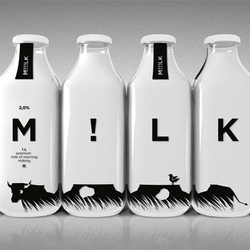Agricultural waste becomes new business models in Germany
In Germany, agricultural waste is fuel for start-ups, writes Ann Kockenbrink in an article on the Topagrar portal.
For example, straw processing has proven to be financially beneficial in two business models. Bavarian start-up Landpack has used the insulating properties of straw to pack food. As you know, in Europe, a course has been taken to find alternatives to plastic, so the founders of the startup Thomas and Patricia Eshenlor developed insulating packaging with an emphasis on the food e-commerce segment.
“Online food retail (e-food) is booming with more people ordering food online for delivery. Of course, products must reach the end consumer well chilled and securely packaged. Plastic packaging has long been an annoyance to shoppers. Since 2014, we have specialized in the development, production and marketing of eco-friendly straw insulation packaging, especially for the needs of food shippers. Landbox, developed by us and internationally recognized, is the world's first completely environmentally friendly insulating packaging with the characteristics of polystyrene. Up to 65 hours at temperatures below 4°C - even at summer outdoor temperatures. More than 600 existing customers from various industries trust our know-how,” says the startup’s website. Raw materials for Landbox are supplied by farmers from the Fürstenfeldbruck area. In addition to straw, the startup also works with plant residues from industrial hemp.
"Super Straw" is the name of an edible drinking straw from Wisefood startup, founder Philip Silbernagel.
The basis of the "super straw" consists of the fiber of APPLE pomace left over from the production of juice, grains and a small amount of stevia for sweetness. Buyers of edible straws include B2B customers such as bars, restaurants, clubs and hotels.
Bone Brox from Berlin makes organic broths from poultry and cattle bones. The startup, founded by founders Konrad Kaspar Knops and Jin-Woo Bae, sources bones from organic farms in Germany, Austria and Switzerland, where the animals are kept to high standards of welfare.
Frozen bones are delivered directly from the farmers to the manufacturer, where the raw materials are boiled for 18 hours, and the broths in packaged cups are sold all over the world. In addition to beef and poultry broth, Bone Brox also offers game and vegetable broth.

